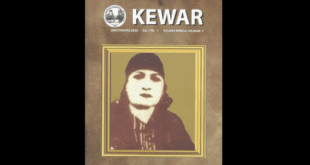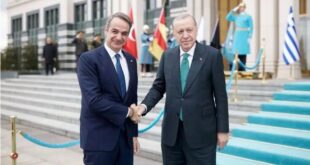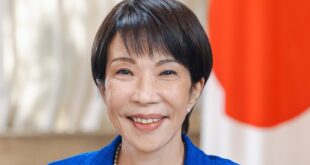Interview: Necat Ayaz
The governing style, political outlook, social bases and economic system of the PYD (and PKK) and the KDP are just too different. The two have sought to undermine each other’s credibility and legitimacy for so long that it seems difficult to overcome such differences. They also compete with each other in both Bashur and Rojava. If they could come to an agreement to leave each other alone within their respective territories, to agree to disagree in the ideological realm, and not to allow themselves to become tools of other powers in the region against each other, then they might co-exist much better.
The meetings where Ocalan is at the center and reconciliation process between PKK and PDK are two new subjects of agenda. The latest phase which aims to end the guerilla war, has involved South Kurdistan actors through visits of Imrali Delegation. Meanwhile, Democratic Confederalist model is striving in the to maintain its presence in the geopolitical context in the Middle East and particularly in the process initiated for Kurdish unity after downfall of Assad regime. We discussed these topics with David Romano, an expert of Kurds and the Middle East.
Based on militant movements and state responses, how do you assess the evolution of HTS under Jolani’s leadership and its implications for Kurdish autonomous regions?
HTS under Jolani’s leadership undoubtedly moderated many of its positions somewhat, over time and during their rule over Idlib province (a rule that was always tenuous), but they have not changed fundamentally – they remain a Sunni Islamist movement, and one born out of Jihadism at that. The reason for the change and moderation must also be examined – did they moderate due to a change of heart, or out of practical necessity and strategic ambition? If the latter, will they return to their much more radical earlier stances as soon as they feel secure enough to do so?
What patterns do you observe in Turkey’s engagement withvarious armed groups in Syria? What are the possible implications of this engagement for Rojava?
Turkey’s main proxy in Syria is the Syrian National Army (SNA). HTS is also beholden to Turkey and quite dependent on it, but I would not describe HTS as a Turkish proxy – their may be some daylight between Ankara and HTS on certain issues, or additional differences that emerge over time. This would be especially true if alternatives to dependence on Turkey emerge, such as backing from Saudi Arabia or other countries.
Additionally, Turkey has displayed a very unfortunate willingness to work with Jihadi groups and individuals in Syria, since the beginning of the civil war in 2011. Although Ankara now talks about countering ISIS in Syria, for many years Turkey allowed ISIS recruits and supplies to transit through Turkey quite freely. According to various reports, the ranks of its SNA proxy appear to have many Jihadists within it, including ex-ISIS fighters. HTS itself is largely made up of Jihadists from groups like Jabhat al-Nusra, al-Qaeda in Iraq and other now defunct outfits. Ankara seems to have no problem working with any of the groups, so long as they are not Kurdish-led.
The implication here, of course, is that Ankara’s main goal in Syria is to prevent Kurds as a group from achieving any of their political goals.
Drawing from your research on social movements in Kurdish regions: How have Kurdish civil society organizations adapted to changing regional dynamics?What patterns do you observe in grassroots responses to current challenges?
I think there are many different Kurdish civil society organizations and it is difficult for me to comment on them in general. My impression after visiting Rojava a few months ago, however, was that these organizations have adapted in very practical and creative ways to respond to everyday needs and challenges facing society there. In Bashur and other parts of Kurdistan they also continue to evolve and adapt. The truly independent organizations change and adapt the most, of course, while those dependent on ruling parties reflect more those parties’ positions.
Given your work on democratic transitions in Kurdish regions, how would you evaluate the evolution of democratic confederalism? What institutional factors are affecting democratic processes in Kurdish areas?
I have seen some very positive signs in some cases, where different municipalities in northeast Syria have adopted different policies – which serves as incontrovertible evidence of a democratic component to this confederalism. The idea of democratic confederalism also offers a new path forward for many in the region, but suffers from resistance by central states and others who view it as “something for Kurds” or “the latest ideological gimmick from the PKK.” The longer such confederalism can exist in northeast Syria or elsewhere, the better the chances of others seeing the system in a different light and more positively, of course. There is also a problem of allowing more political diversity and parties to compete in elections within the system, of course (the need for more political liberalism, if you will), which is something that may see progress if there is continued improvement in relations between the ENKS and KRG.
Given the negotiations aiming to include the Kurdish National Council (ENKS) inRojava’s administration and the rapprochement with the Kurdistan Regional Government, plus Western powers’ influence that have prevented further Turkish expansionism in Rojava, how would you evaluate the future of Democratic Confederalism in Rojava?
If these two processes – rapprochement between the ENKS and KRG and continued Western commitment to the defense of Rojava – continue, then the future may look very good. That is a very big “if” unfortunately. We don’t know, just as we don’t know what kind of regime will emerge in Damascus eventually. I would think a better regime in Damascus would emerge if Western powers demand a significant role for Syrian Kurds and all the people of northeast Syria in Damascus. So far that does not seem to be happening enough.
One of the most positive things Western powers could do would be to link the issues of sanctions relief on Syria with concrete moves by the new government to truly incorporate the Autonomous Administration of Northeast Syria, and other groups like the Druze and Alawis in their respective regions, into the new governing system — on terms that are mutually acceptable to all. In effect, the Western powers would be demanding guarantees for power sharing and some measure of decentralization in return for recognition and sanctions relief. This would go a long way towards preventing the emergence of yet another centralized, authoritarian regime in Syria. It will be opposed by Turkey of course, but support from others such as Saudi Arabia and the UAE could be secured.
Considering the deep ideological divisions and different political agendas between the PKK and PYD on one side and the KDP on the other side, what is the chance of Kurdish unity in light of the Barzani-Ebdi meeting?
It depends what we mean by “unity.” If we mean that the different parties could largely put aside their opposition to each other and coexist well, then sure – I would think that is possible, if not easy. Beyond that, I don’t see the prospect for more unity.
The governing style, political outlook, social bases and economic system of the PYD (and PKK) and the KDP are just too different. The two have sought to undermine each other’s credibility and legitimacy for so long that it seems difficult to overcome such differences. They also compete with each other in both Bashur and Rojava. If they could come to an agreement to leave each other alone within their respective territories, to agree to disagree in the ideological realm, and not to allow themselves to become tools of other powers in the region against each other, then they might co-exist much better. Such an entente would require strong will from strong leaders. Both Massoud Barzani and Mazloum Abdi are strong leaders with vision, so maybe it is possible. The meeting they had would be the first step.
The Turkish state has spread feelings of hope and worry simultaneously among the Kurdish people with the meetings of the DEM Partî-Ocalan supposedly aiming for peace in Turkey. Kurdish public opinion has increasingly been divided over whether to give a chance to this last attempt or to act completely independently from Turkey in order to utilize the opportunities that the new geopolitics in the Middle East have created for a possible Kurdish status in northern and Rojava Kurdistan. What would you like to say about this potential polarization in Kurdish public opinion?
This is not an easy question. Many criticize former HDP leader Selahattin Demirtas for refusing to work with Erdogan and opposing him as president of Turkey. Selahattin has certainly paid a heavy price for his principled position, as did many others. A lot might depend on the credibility of Turkish promises and the sincerity of elements of the ruling political class in Turkey to make peace. The Kurds should never turn away offers to make peace, of course, but these must be sincere offers that include addressing the conditions that created civil conflict within Turkey in the first place. Above all, Kurdish citizens of Turkey need to continue doing their best to convince Turkish society in general that they want both dignity in Turkey and peace, and that the two will benefit everyone. Language and cultural rights in Syria as well power sharing and decentralization should not threaten Turkey, but convincing Turks of this seems exceedingly difficult. If the PKK ended its armed struggle, perhaps the task would be made easier for Kurds and others in Syria.
It is reportedly said that Ocalan will call for the PKK to end armed struggle,which would surely be used by the Turkish state as a major victory. If this happens, what kind of effects will it have, especially for the future of the Kurdish movement in Northern Kurdistan and Rojava?
It would be very interesting if the PKK ended its armed struggle with the Turkish state, but the Autonomous Administration of Northeast Syria maintained its forces within Syria, at least pending a satisfactory arrangement with Damascus. They are not the same, after all – and the people of Syria need assurances from the new government emerging in Damascus. These are separate issues, although of course there are important dynamics linking them. It would likewise be very interesting to see the threat that some in Ankara use to deny language, cultural and political rights to many of the country’s citizens removed. In some ways, the pressure on Ankara to grant such rights might increase. In some contexts, such as when the so-called Islamic State (ISIS) was threatening everyone in the region, there is no choice but to organize and fight. In other situations, organizing and peacefully struggling for one’s rights might prove more effective.
—————————————–
 Infowelat Enformasyon Ji Bo Welat
Infowelat Enformasyon Ji Bo Welat




